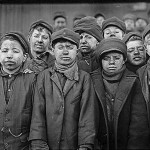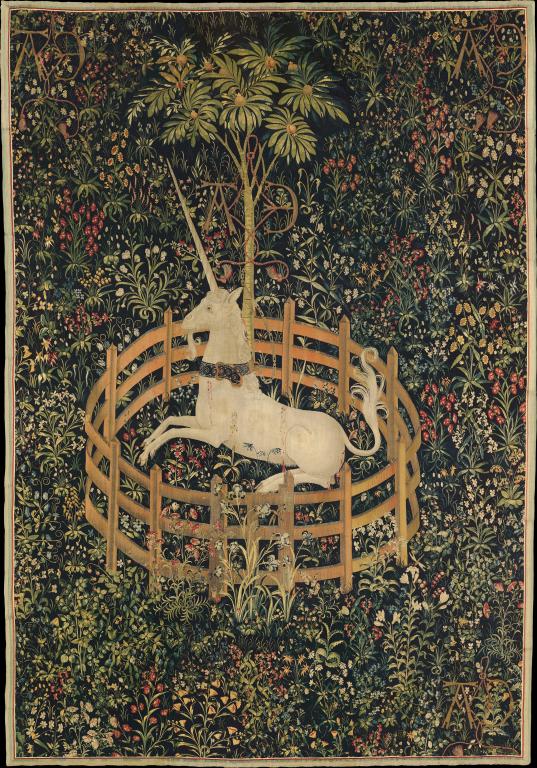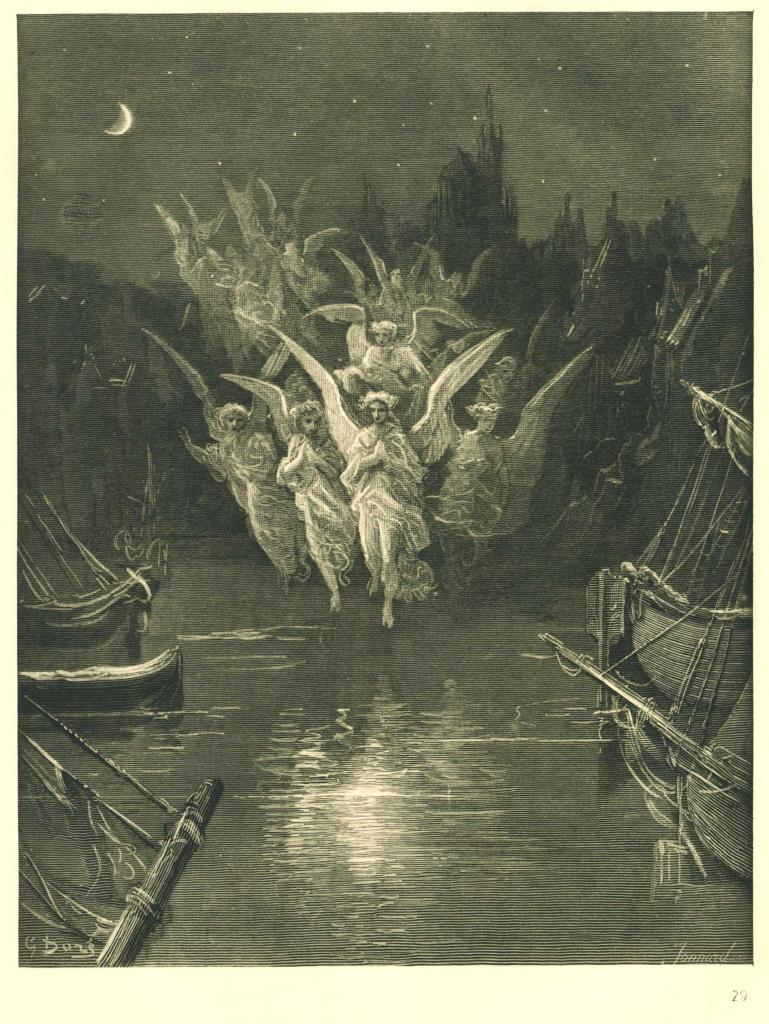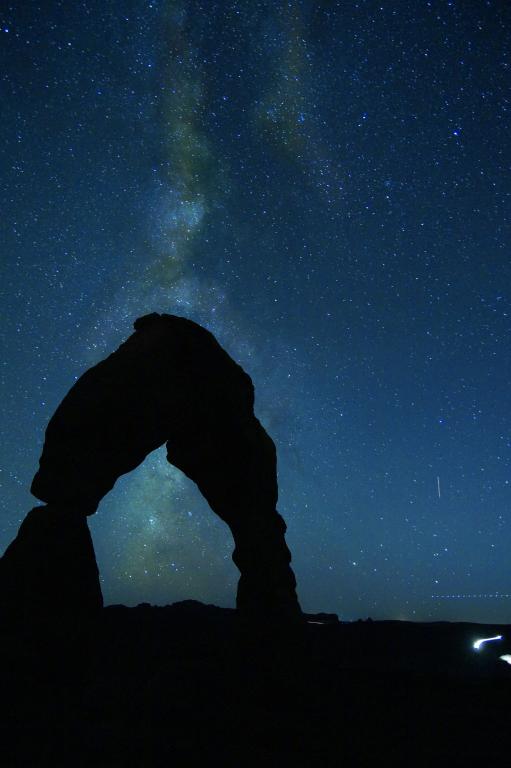David Russell Mosley
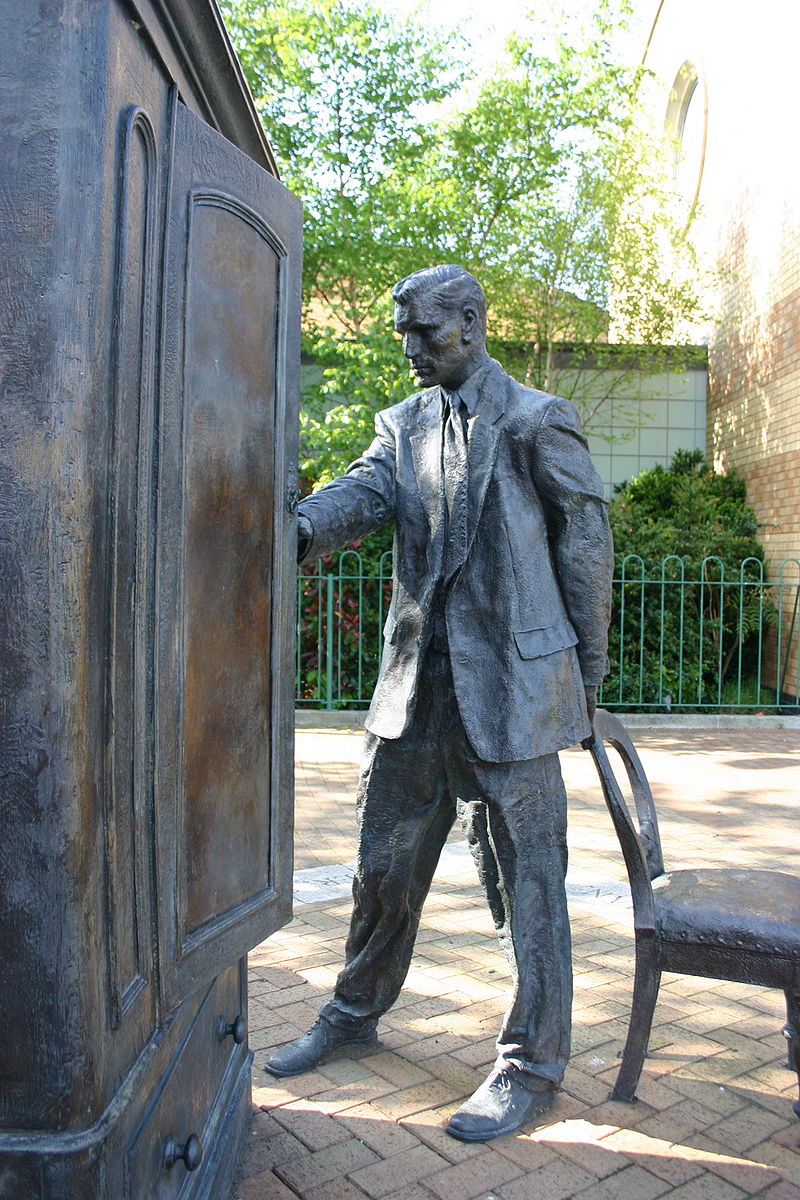
Statue of C. S. Lewis looking into a wardrobe. Entitled The Searcher by Ross Wilson (CC by 2.0) (FOP)
Ordinary Time
21 November 2016
The Edge of Elfland
Hudson, New Hampshire
Dear Readers,
There are so many things happening that I’d like to write to you about. For instance, a few weeks ago the Acton Institute published an essay about bringing back child labor. Their article was partially a response to another article suggesting the same thing. Hopefully, I’ll get to that eventually. I’ve just finished reading Peter Wohlleben’s The Hidden Life of Trees and need to do a review of it. And, of course, there’s everything that is going on in our world, and particularly our country right now, like Trump’s White Supremac… I mean “Alt-Right” staff choices; Mike Pence and the cast of Hamilton; Fr. Frank Pavone of Priests for Life infamy (thanks to placing an aborted fetus on an altar in order to encourage people to vote for Donald Trump) telling people to boycott Hamilton because we have to support our elected officials; and of course the continued maltreatment of protesters at Standing Rock. Thankfully, my fellow writers here at Patheos Catholic are ably discussing many of these issues. This allows me to turn, somewhat, from darkness to light.
Today is the day on which JFK, Aldous Huxley, and C.S. Lewis all died in 1963. While much has been made of the fact that all three men died on the same day, I want to focus on Lewis. He is an author whose effect on me cannot be properly quantified. I not only know what I know, but am who I am today in large part because of the works and legacy of C. S. Lewis. His works, which I first discovered when I was an elementary schoolboy helped shape, even baptize my imagination, in the same way that George MacDonald’s Phantastes baptized his own. I was not, when I first encountered Lewis’ works a Christian, of course I wasn’t an adult (young or otherwise) yet either as he was when he encountered MacDonald. But still, my first trip into Narnia helped give shape to my thoughts and beliefs even then.
Prior to becoming a Christian or learning much about Christianity, I was actually something of a pagan. As a young child I was thoroughly fascinated with the world of Greco-Roman myth, reading every book available to me in my school’s library. I can still remember a day in fourth grade, when I was in tears because a fellow student and I had been arguing over whether the Greek gods exist currently. I was firmly for, he was firmly against. When I came to Narnia, here I discovered fauns and satyrs, dryads, naiads, and hamadryads and more. Lewis helped provide a context for my understanding of the world that included the possibility of beings other than ourselves. This, along with a fervent belief in Santa Claus that in once sense lasted until I was 12 and in another lasts until today, helped shape my view of the world as place where things and beings that we can’t always see firmly belong. These beliefs paved the way for my teenage self to accept the existence of God and that he had sent his Son.
Of course, as I grew up, and particularly as I became a Christian, my reading of Lewis expanded into more of his works, and deepened as I began to understand them better. But rather than cause me to leave behind my beliefs in fairies, and gods, and Santa it provided a deeper context for them to be real in ways less than evident to us. Lewis (along with Tolkien and others) provided the framework for me to accept Denys’ Celestial Hierarchy, Maximus’ mystagogy and his understanding of the human person as a microcosm, Aquinas’ analogy of being, or Milbank’s participatory ontology (not that any of these things are entirely exclusive to the authors listed with them). Angels, visions, mystical experiences, sacraments, all of this has become real to me and not just known by me and it is because of Lewis and others that I was able to accept these understandings of reality. The pre-modern, in fact the ancient, world in which I steeped myself and which Lewis helped re-contextualize for me aided me in not being quite so bound by modernity as others might be (though I am still more bound by it than I would care to admit).
So today, I hope you will join me in raising a glass to Lewis, and reading something he’s written. He was an excellent essayist as well as novelist and “apologist” so there’s plenty of short material to read. But whatever you do, remember Lewis. Even if you think him overrated, and there are plenty who do, remember that he helped people like me and prepared the ground for our acceptance of Christ.
Sincerely,
David


